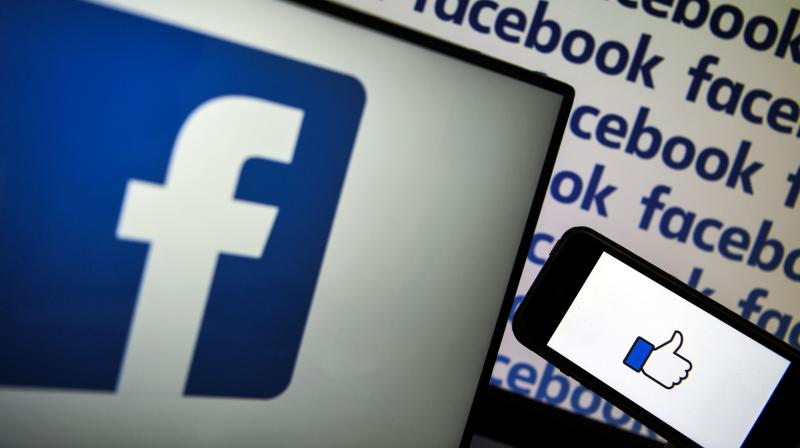Tech This Week | Can Facebook’s ‘Supreme Court’ produce the web a safer place?

Collected
Earlier the other day, Facebook’s Oversight Board (typically dubbed Facebook’s Supreme Court) announced co-chairs and first 20 members. The board allows users to charm removal of their posts, and after request may also issue advisory opinions to the company on emerging plan questions.
Why did we get here? With billions of users, Facebook has had a content moderation difficulty for some time. In an excellent world, good posts would stay up, and bad posts will be pulled down. But that's not how it gets results. When it comes to Facebook posts, morality isn't always black and white. Arguments can be produced on either side for some posts regarding where in fact the right to no cost speech ends. Likewise, whether politicians ought to be permitted to lie in ads.
Status quo features historically dictated that Facebook uses these decisions and the universe continues on. However, that method generally offers been perceived such as a black field. There hasn’t been a whole lot of transparency around how these decisions happen to be taken, in addition to the minutes of Facebook’s Product Insurance plan Forum, that is a mixed bag.
An intended and anticipated consequence of this board is that it will instil more transparency in to the process of what stays up and just why. By reporting on what the board reviewed and did not discuss, it can help bring considerably more clarity around the virtually all prevalent concerns on the system. It may help reveal whether bullying is usually a bigger problem than hate speech or how (or where) harassment and racism manifest themselves.
There is the issue of whether the decisions taken by the board will be binding. Mark Zuckerberg claimed that “The board’s decisions will be binding, whether or not I or anyone at Facebook disagrees with it,” so that it is safe to state that Facebook vows they'll be. The board could have the power to remove particular pieces of content. The dilemma is if the board’s judgements will also apply to bits of content material that are either very similar or identical. In any other case it would make no feeling for the board to move a decision on each and every little bit of content on Facebook.
Regarding this, Facebook’s stance can be, “in instances where Fb identifies that identical content with parallel context - which the board has already decided after - remains on Fb, it will require action by analysing whether it's technically and operationally feasible to apply the board’s decision to that content aswell”.
In basic speak, board members (who'll not absolutely all be computer engineers) may make recommendations that can't be implemented across the platform. In which particular case, Facebook will certainly not go ahead with replicating your choice for every single little bit of decision on the system. Also, in case the board does just do it with an extremely radical recommendation (say, shut down so on button), Facebook can ignore that.
On the bright side, as far as content moderation is concerned, there seems to be little reason for Facebook to not in favor of the decision of the board anyway, considering the body has been set up to take this responsibility (and blame) off Facebook’s hands.
The billion dollar query is whether it'll help to make Facebook a safer place. The short response is no (followed by too early to state). The board is only going to manage to her a few dozen instances at very best. New members of the plank have focused on an average of 15 hours a month to the work, which is to moderate what stays up for a individual basic of 3 billion persons. Even if the people were full time, the quantity of cases the board could have been able to see and move judgement on is a drop in the sea. Based on how your body is structured, it seems sensible for the customers to deliberate on the virtually all visible or charged cases (such as for example political advertising or the presence of deepfakes on the platforms).
It has historically been a difficult process for society approach the needle frontward, and the plank an effort to do that. The very best case scenario here's that your body achieve incremental progress by installation of key principles that lead Facebook’s content moderation attempts. As far as whether the board will make Facebook (and by extension, the web) a safer place, it really is too early to state but seems unlikely. For each visible deepfake of Nancy Pelosi or Tag Zuckerberg, there are thousands of articles moderation decisions that require to be produced. Low profile cases of misinformation, bullying, harassment, and abuse plague platforms like Facebook, Instagram, and WhatsApp and can not magically vanish.
Instead, content moderation at Facebook will be a long fraught battle, led by the board. This is the beginning of 1 of the world’s most important and consequential experiments in self-regulation. Time will show how it forms up.
Source: https://www.deccanchronicle.com
Tags :
Previous Story
- Tech This Week | Will Facebook’s ‘Supreme Court’...
- Facebook removes accounts linked to QAnon conspiracy theory...
- Lots of companies now want your video chats...
- Facebook earnings slips as use leaps during pandemic
- ‘Kotha is our Facebook, PayPal and WhatsApp’
- Vodafone Group exits Facebook-led Libra currency group
- NRBJobs streamed Career Café on Facebook, Youtube
- Facebook Backs Off Controversial Plan to Sell Ads...